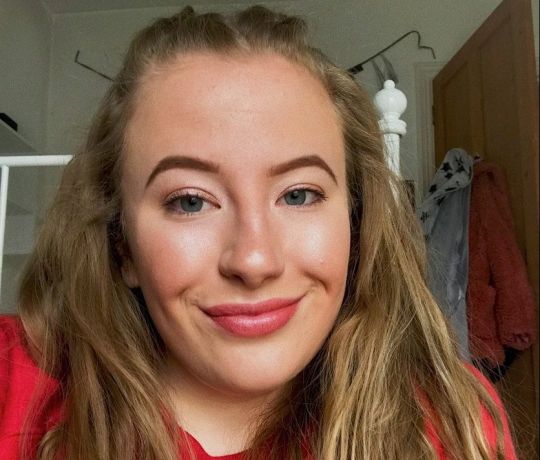A student can sleep for a week straight, without even waking up to eat or use the toilet, after drinking alcohol. Hermione Cox-Denning, 18, was diagnosed with Kleine-Levin syndrome (KLS) also known as Sleeping Beauty syndrome in November last year, which causes a person to suffer recurring periods of excessive sleep.
Hermione from Aberystwyth, Wales, said: ‘My memory of my first episode is hazy. I just remember waking up for a few minutes throughout the hours and hours of sleep, dreary and confused.
‘My mind was so confused – I couldn’t speak, I didn’t eat or drink and I didn’t go the toilet. It was like my body shut down. ‘I was always on my phone before, but I didn’t speak to anyone for a whole week because I kept sleeping. ‘I think a lot of my friends were worried because I just disappeared.’ She said it can take up to four days to ‘get back to normal’ after an episode. And it was on her 18th birthday she realised that a boozy night out was her biggest trigger. She continued: ‘It took me a long time to see what was triggering this for me. I knew it wasn’t stress and I couldn’t see a particular food pattern.
‘I realised that when I drank alcohol, I would often have an episode the next day. ‘I’ve learnt that I can have one or two drinks but much more than that causes me to plunge into a deep sleep for days afterwards. I’m like the real life Sleeping Beauty.’ When it started her parents Clare, 54, and Liam, 50, thought she had the flu, but when the periods kept reoccurring they grew concerned and she went to a doctor in 2016. She said: ‘By then, I was getting really concerned. I was missing out on lots of school, I was predicted really high grades and I didn’t want those to drop. ‘I went to see a doctor and they said it was depression and mental health issues.
In 2017, she went to another doctor for a second opinion, who referred her to a neurologist. ‘By then, I had been researching sleep disorders on the internet. The first thing that had come up was sleeping beauty syndrome.’
Following a Skype consultation with Bronglais Hospital, Aberystwyth medics and a series of scans and tests, she was eventually diagnosed with KLS. Her neurologist said many KLS patients see their episodes decrease as they get older.























